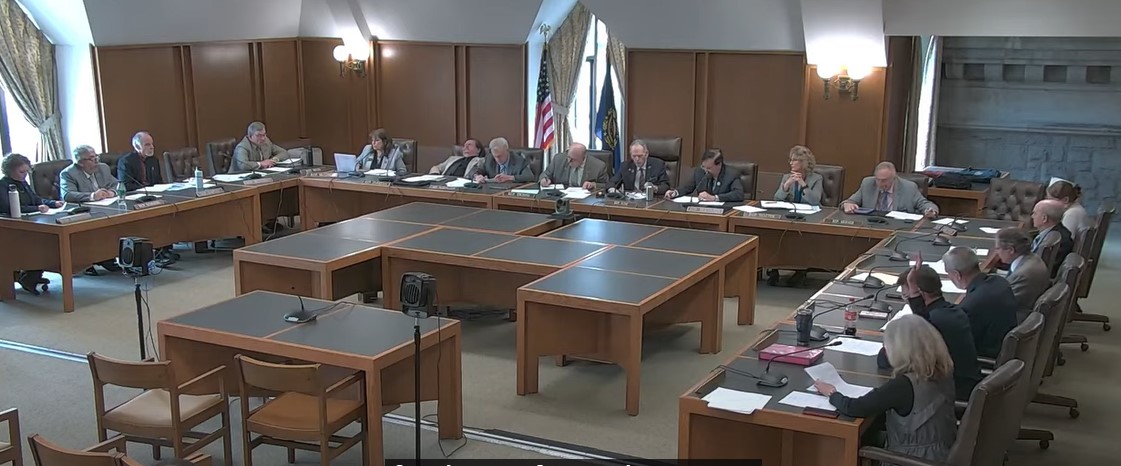By PAULA TRACY, InDepthNH.org
CONCORD – A potential big win for the state’s electric ratepayers that would enable utilities to enter into long-term power agreements for new and likely mostly renewable projects passed by a unanimous vote by the House Science, Technology and Energy Committee to the House on Monday.
It is a slightly amended version of Senate Bill 54 which passed the upper chamber and enjoys the support of the state’s renewable energy community, Gov. Chris Sununu, Republican leaders and ratepayer advocates.
Existing power providers opposed the bill.
It would allow for a change to the current structure under energy deregulation which now has Eversource, Unitil, and Liberty Utilities – the state’s only three regulated power utilities who are now restricted to six-month rate contract agreements – to negotiate for as long as 20 years.
Ratepayers and lawmakers were shocked last fall by rate hikes on six-month contracts, with many customers seeing their bills almost double for that set six-month period.
The utilities don’t make money on the product, only on the transmission aspect and it is a pass-through cost that was approved by the Public Utilities Commission.
Last fall the price spiked because the least expensive product used to make electricity – natural gas – shot up due to the war in Ukraine and other issues related to supply chain issues, with New Hampshire one of the farthest away on the pipeline.
This volatility got the attention of lawmakers who said there has to be a better way to guarantee, stabilize or give consumers a hedge on those markets.
This would allow for up to 20 percent of the electricity in the state to come from these 20-year agreements but the bill does not require electric companies to enter into the agreements.
Renewable energy advocates criticized the governor and others for failing the state’s ratepayers by not investing more in renewable sources compared to neighboring states, but many of those entities are also behind SB 54 as a potential game-changer that would favor renewables but not limit those agreements to those sources.
There were eight changes made in a special subcommittee on the bill Monday which were largely clerical but differs from the Senate version. The means if approved by the House, it would require a committee of conference to hammer out any issues before making it to the governor’s desk.
The utilities “shall” solicit public comment rather than “may” for example, in the language of the bill and other changes broke up definitions into different paragraphs and deleted superfluous language.
It did modify the bill to allow for it to include new energy which could come from an old idled power plant and to allow for “incremental” or only new energy from that source of power to be in an agreement of up to 20 years.
“This is a major change we are contemplating here,” said state Rep. Michael D. Harrington, R-Strafford, a former PUC commissioner, member of the NH Offshore Wind Commission, and a senior regional policy advisor for Seabrook.
He said he would vote for it but he said it is “stepping back before restructuring,” and there is a risk associated with it for the ratepayers.
Committee Chair Michael Vose, R-Epping, said while this bill does not guarantee that anything good is going to happen it does potentially enable it.
“I will be happy to support it,” he said.
It was placed on the regular calendar for the full House to consider.
A copy of the bill is here: https://www.gencourt.state.nh.us/bill_Status/billinfo.aspx?id=890&inflect=2
Former senator and Deputy Mayor of Lebanon Clifton Below, who was the prime author of the 2019 Community Power Law (NH RSA 53-E,2019) which is giving municipalities and counties an alternative to buying power themselves, said if passed, Senate Bill 54-FN could be a long-term hedge which could help all ratepayers in the state.
Speaking to the subcommittee last Monday, he said it would recognize the limits and volatility of price in the current short-term markets for electricity which the state has used for the past 20 years, and create long-term contracts for one-fifth of the electricity or “base power” used in New Hampshire.
